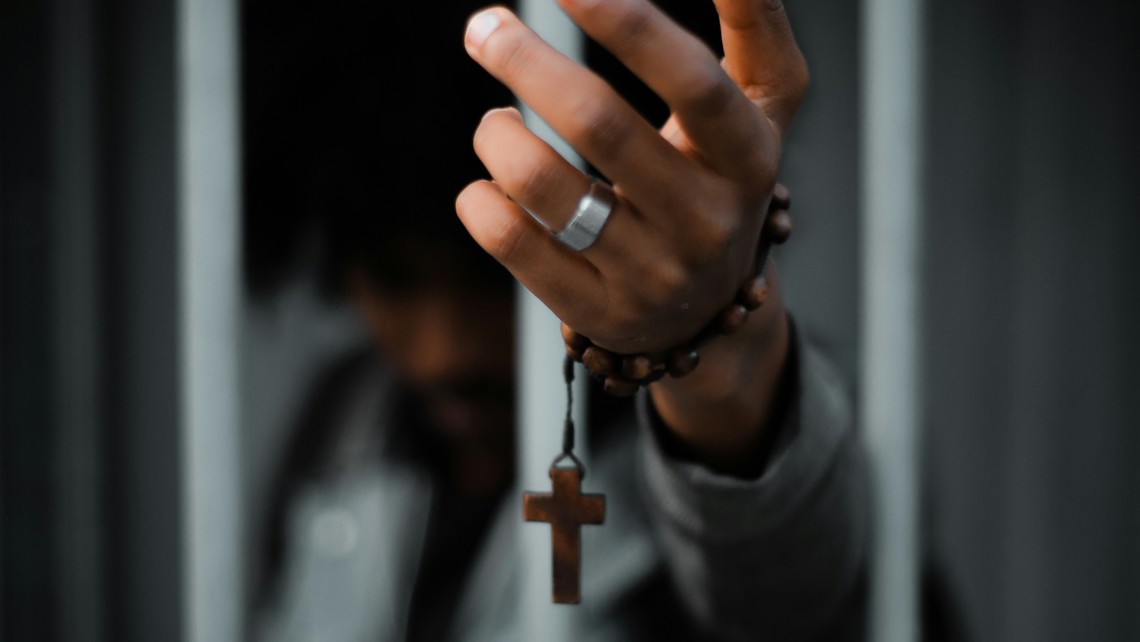
There is a prevailing mindset within the current strata of human society that every individual human being has the right to live by their own creed. Creed, from a secular human perspective, can be defined as the way a person chooses to live their life based on their own personally developed civil and moral code. The content of this personal code may involve how the person views the existence of a God, the relationship, both spiritual and physical, between a man and a woman, or the affirmation or denial of the sanctity of life at all stages of development.
The relationship between the general credal order of society and the exercise of a credal belief system can be traced back to the Old Testament and the Great Shema instituted by God through Moses. The Shema can be described as a set of beliefs under the guidance of a specific creed of faith meant to guide Israel towards a proper worship of God the Father and respect for their fellow Israelites. The following chapter and verses from the book of Deuteronomy explain the structure and practice of the Shema,
Now this is the commandment, the statutes and the ordinances which the Lord your God commanded me to teach you, that you may do them in the land to which you are going over, to possess it; that you may fear the Lord your God, you and your son and your son’s son, by keeping all his statutes and his commandments, which I command you, all the days of your life; and that your days may be prolonged. . . Hear, O Israel: The Lord our God is one Lord; and you shall love the Lord your God with all your heart, and with all your soul, and with all your might. And these words which I command you this day shall be upon your heart; and you shall teach them diligently to your children, and shall talk of them when you sit in your house, and when you walk by the way, and when you lie down, and when you rise. And you shall bind them as a sign upon your hand, and they shall be as frontlets between your eyes. And you shall write them on the doorposts of your house and on your gates.[1]
The significance of the Shema is two-fold: one, it provides a structure on how to properly worship God the Father and assent to the Father’s love instead of our own, and second, it provides clear instruction on how to love our fellow human being, or in other words, as a child God loving a fellow child of God in the name of God the Father. The importance of this structure is that it serves as a basis for the development of the Creed of Faith in the Catholic Church, expressed through the Apostles' and Nicene Creeds, respectively. The premise of these creeds is that they call or direct us to turn toward God the Father through the Son and the Holy Spirit instead of ourselves. And here is where the great risk of believing in or daring to apply the Creed of Jesus Christ comes into our daily human activity. The Catechism tells us that,
Our profession of faith begins with God, for God is the First and the Last, the beginning and the end of everything. The Credo begins with God the Father, for the Father is the first divine person of the Most Holy Trinity; our Creed begins with the creation of heaven and earth, for creation is the beginning and the foundation of all God’s works.[2]
The reality of professing a creed, especially one directed toward someone other than yourself, is that you are not the center of the universe. It must be shared with others around you. The tendency toward self-centeredness, active and passive narcissism, and the creed that I deserve more than the person next to me is called into question. A greater risk exists when belief in the Creed of Jesus Christ compels you without reservation to proclaim that Jesus is Lord and is the center of your universe. Now you are faced with a decision to eschew your past and embrace a new way of living for someone other than yourself.
A greater risk of assenting to a Creed associated with Jesus Christ is developing an awareness of the dignity of the people around you. The person or persons you viewed as a nuisance or as enemies are now recognized as a brother and sister in Christ. As the risk of believing in the Creed of Christ begins to develop and change your way of thinking and living, the journey of life is no longer isolated but associated with Jesus Christ. An openness to accommodating Christ in one’s daily activity becomes a standard of living through the gift of grace. The Catechism provides us with a poignant quote from St. Nicholas of Flue[3] that adequately summarizes the risk of belief in the Creed of Christ,
My Lord and my God, take from me everything that distances me from you. My Lord and my God, give me everything that brings me closer to you. My Lord and my God, detach me from myself to give my all to you.
St. Nicholas of Flue






